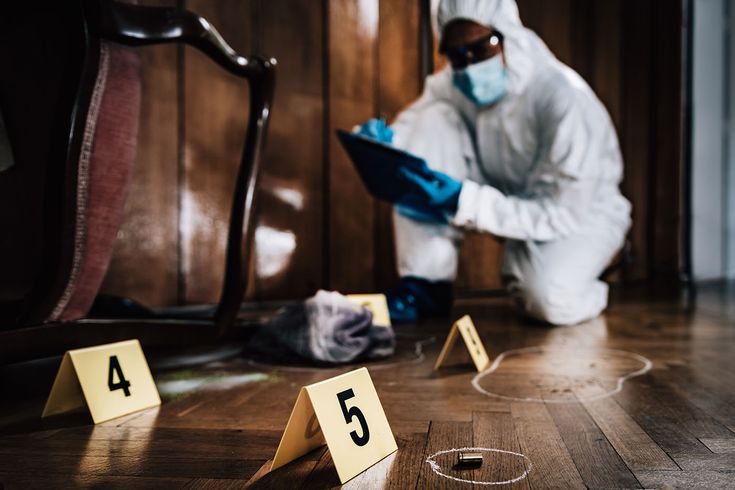Finding the Best Domestic Assault Attorneys

Introduction
Selecting the right legal representation can make all the difference in domestic assault cases. Domestic assault attorneys have specialized knowledge to handle these sensitive situations and protect victims’ rights. This article provides guidance on what to look for when choosing a domestic assault lawyer, typical case processes and outcomes, and options for getting legal help.
Definition of Domestic Assault
Domestic assault, sometimes called domestic violence, occurs when a person physically, sexually, or emotionally abuses their spouse, intimate partner, or family member. It involves using intimidation, threats, and violence to control another person.
Common domestic assault actions include:
- Hitting, slapping, punching
- Strangulation
- Forcible sex
- Destruction of property
- Stalking
- Verbal insults and threats
Domestic disputes can easily escalate into criminal cases. Having an experienced attorney helps victims understand options and navigate complex legal processes.
Key Skills and Experience to Look For
The best domestic assault attorneys have certain background knowledge and approach cases with sensitivity. Ideal credentials and values to seek out include:
Specialization
- Focuses specifically on domestic assault, stalking, harassment, and violence cases
- Keeps up with latest laws and case strategies
Courtroom experience
- Has represented many abuse and stalking cases to verdict
- Comfortable arguing before judges and negotiating with prosecutors
Trauma-informed
- Uses appropriate language and sensitivity for abuse survivors
- Helps clients feel safe throughout legal proceedings
Committed to clients
- Devotes time understanding client needs and limitations
- Explains legal specifics in understandable ways
- Strives to minimize additional trauma
Typical Case Process with a Domestic Assault Attorney
Having a knowledgeable guide for the aftermath following domestic violence can greatly ease confusion and anxiety. While every case has unique details, common legal processes often include:
Initial consultation – Attorney meets with victim to:
- Learn detailed case facts
- Discuss evidence like photographs, medical reports and eyewitness accounts
- Explain legal options like protective orders and restraining orders
- Provide guidance on interacting with police and prosecution
Investigation – Attorney may:
- Interview witnesses like neighbors or family
- Gather relevant medical, police and court documents
- Research accused perpetrator’s history
- Identify all possible legal claims
Protective measures – Lawyer helps secure:
- Orders of protection for victim safety
- No contact directives for accused abuser
- Other precautions like home security systems
Case proceedings – Attorney represents client by:
- Negotiating with prosecution for diversion programs or plea deals
- Making arguments before judges in hearings and at trial
- Questioning witnesses on the stand
- Helping survivors tell their stories
Resolution – The lawyer continues advising:
- On what penalties the abuser faces if found guilty
- About sentence, probation terms and parole conditions
- Regarding long-term safety planning and precautions
Also Read:
https://besraha-news.online/fathers-rights-lawyers/
Having an advocate through every step eases the process for domestic abuse survivors.
Typical Case Outcomes and Results
Results vary widely based on state laws, level of violence, and quantity of evidence gathered. Generally, domestic assault attorneys aim to secure the following outcomes:
- Protective orders – 85% of initial petitions result in temporary protection for up to 18 months including no contact directives. Judges may also rule on child custody or require the abuser to leave a shared home.
- Restraining orders – Requires showing reasonable fear of future harm. 70% of requests face approval on average. These legally mandate no contact and allow arrest if order violated.
- Diversion programs – For first time or non-severe allegations, completing counseling through a Batterers Intervention Program may lead to dismissed charges. Graduation rate is 63% on average.
- Plea bargains – An estimated 95% of domestic violence charges settle without trial. Typical pleas result in some combination of fines, probation, anger management and jail time.
- Trial convictions – With solid documentation and victim testimony, around 73% of criminal domestic abuse trials end in guilty verdicts. Convictions often carry hefty fines, multi-year probation and months or years in prison.
While attorneys strive for strong punitive outcomes, top priority is always protecting client safety and wellbeing through traumatic proceedings.
Getting Legal Help from a Domestic Assault Attorney
If facing domestic assault allegations or trying to escape an abusive relationship, time is of the essence to engage legal counsel. Top options to connect with qualified representation include:
State bar association referral services – Local state bar websites offer search tools for locating licensed attorneys by specialty qualifications and geography.
Nonprofit abuse assistance organizations – Organizations like the National Coalition Against Domestic Violence or WomensLaw.org have databases for pro bono and low-cost legal help.
Law school legal clinics – Universities often have domestic violence legal clinics assisting underprivileged clients at no cost while training future lawyers.
Private law firms – Boutique firms and solo attorneys may devote focus specifically to domestic abuse cases with personalized service.
When researching qualifications, be sure to understand fee structures and payment expectations. Contingency arrangements are rare in these cases yet some lawyers offer flexible payment plans. Domestic assault situations involve complex emotional and legal hurdles best navigated with compassionate yet aggressive legal representation. Choosing lawyers with the right combination of relevant skills and experience can prove critical to maximizing safety and justice.
References
Leone, J. M., Lane, S. D., Koumans, E. H., DeMott, K., Wojtowycz, M. A., Jensen, J., & Aubry, R. H. (2010). Effects of Intimate Partner Violence on Pregnancy Trauma and Placental Abruption. Journal of women’s health, 19(8), 1501–1509. https://doi.org/10.1089/jwh.2009.1716
Semahegn, Agmas & Mengistie, Bezatu. (2015). Domestic violence against women and associated factors in Ethiopia; systematic review. Reproductive Health. 12. 78. 10.1186/s12978-015-0072-1.
Black MC, Basile KC, Breiding MJ, Smith SG, Walters ML, Merrick MT, Chen J, Stevens MR. (2011). The National Intimate Partner and Sexual Violence Survey (NISVS): 2010 Summary Report. Atlanta, GA: National Center for Injury Prevention and Control, Centers for Disease Control and Prevention.







